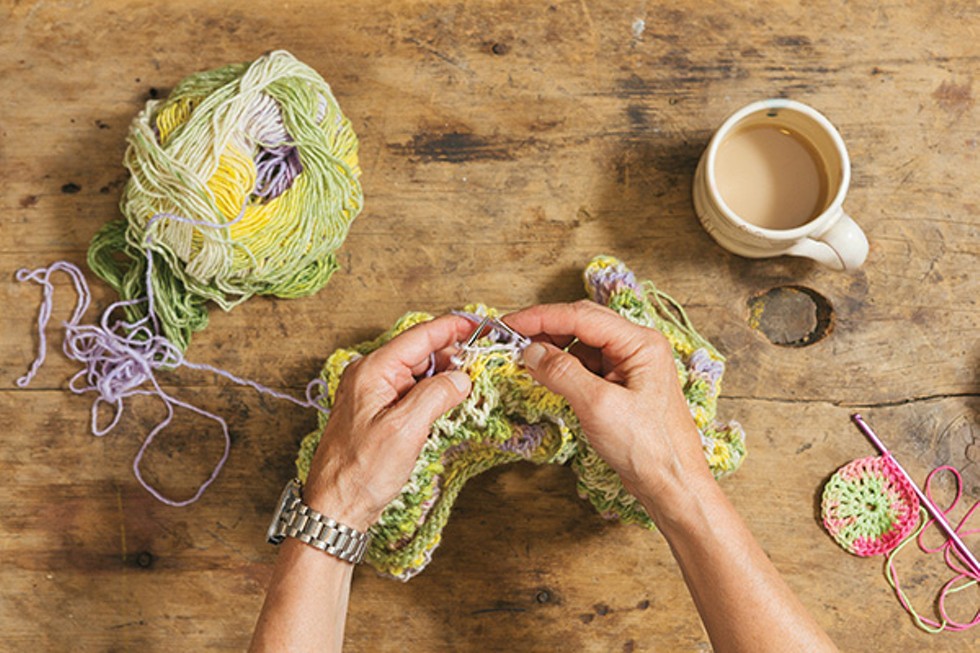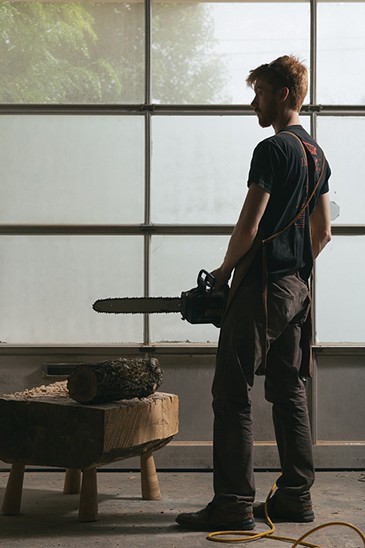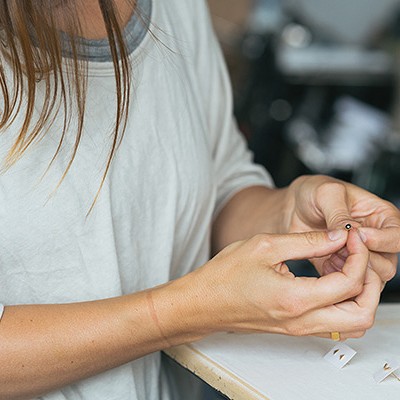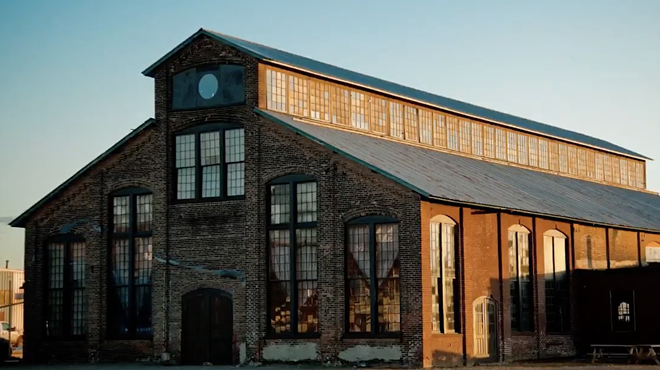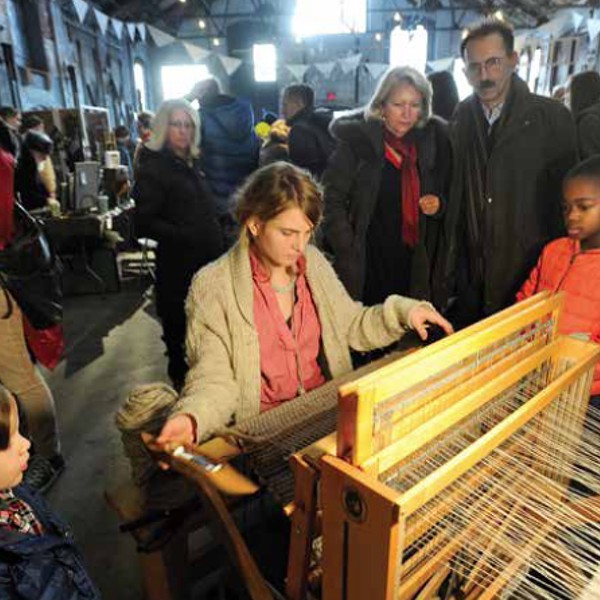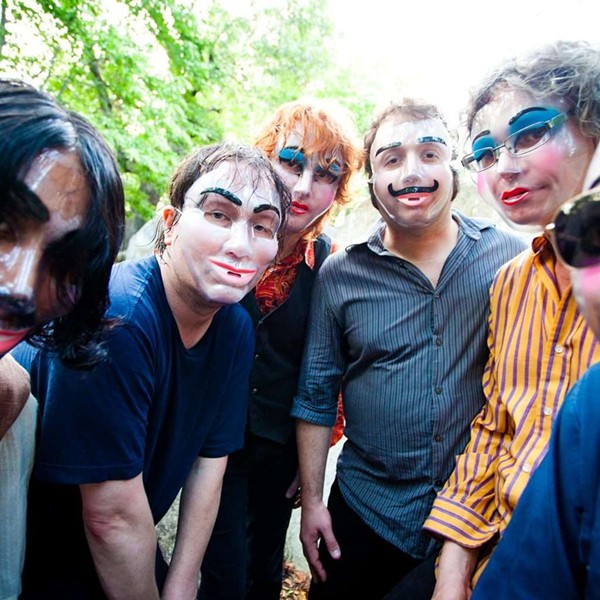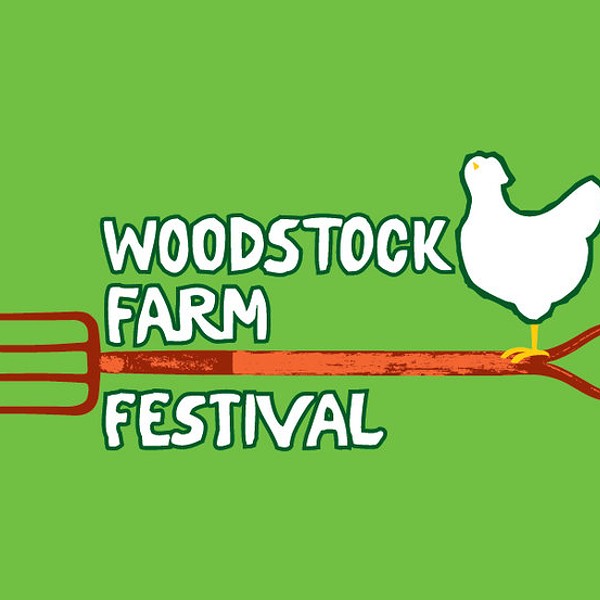Three years ago, Danielle Bliss and Joe Venditti were art school graduates struggling to find satisfying work when they started Wishbone Press. Working out of a loft in Kingston's Shirt Factory, they design and print cards, coasters, business cards, wedding invitations, and the like on four antique letterpresses. Their bold, eye-catching designs and messages keyed to the tastes of the under-30 crowd updates an archaic printing technology with wit and whimsy.
Besides an offbeat, hand-produced product, the couple are savvy marketers, deeply connected to the crafter community and also with their customers via Etsy. They network extensively through social media and curated a crafts fair last December in Uptown Kingston called the Hullabaloo. Despite the long hours and risks, "when you own your business and are doing something you love, it's satisfying," says Bliss. "People are finding a lot of value in handmade things. They don't want to support factories in China."
DIY Country
The indie craft movement is transforming the Hudson Valley into an artisan stronghold, and many of the crafters are people like Bliss and Venditti, who pursued their vision because they had absolutely nothing to lose and, by dint of talent, hard work, and frugal living, are living out their dream. Cheap space and a vibrant community of artists, artisans, and creative entrepreneurs are a definite lure, and many discover that the area's farms and thriving food culture make upstate living more satisfying than Brooklyn. "Friends from New York City wonder how I can adapt to this rural, small-town living, but it nurtures me," says Melissa Auf der Maur (bassist for Hole and Smashing Pumpkins), who moved to Hudson from the city with her partner Tony Stone, a filmmaker, six years ago. The couple are the creative directors of Basilica Hudson, a reclaimed factory in Hudson that hosts cultural events, including the Farm & Flea crafts fair. Much as in the 1960s, "people are returning to the land and wanting to be independent from an infrastructure they do not trust," Auf der Maur says.
Many crafters adhere to a do-it-yourself ethos that defies entrepreneurial conventions. Mary Ahern, owner of Angel Hill Apothecary, who makes natural skin-care products from plants foraged from her family's 140-acre farm in Chatham, is not anxious to expand, though demand is growing. Although she plans to hire someone to help with the harvesting and packaging, Ahern will continue to concoct her products—a process that involves drying the plants and infusing them in 100 percent organic hemp oil—herself. "I enjoy that aspect of making a really pure product," she says. Ahern regards other similar crafters not as competition but as part of her community. "Everyone's pretty small," she says. "We all learn from each other, and everyone's very supportive."
Quality Reigns
The craze for the handmade, be it knitted, sewed, crocheted, felted or woven, printed, painted or silk screened, carved or turned on a lathe, salvaged and forged, harvested from a field and mixed with edible oils, thrown on a potter's wheel, or glazed and fired, is clearly a reaction to the bland mechanization and chain-store standardization of daily life. Too many hours spent at the computer, lack of interesting, well-paid work and job security, as well as resistance to mass-market consumerism, with its labor exploitation, waste, and cheap, disposal products, are spurring a backlash. "It's a real paradigm shift," says Sherry Jo Williams, proprietor of Culture+Commerce, who formerly worked in the corporate sector as a designer and stylist but now is committed to promoting the two dozen crafters represented in her Hudson store. "People are willing to have less money, have a better quality of life, and spend more money on fewer things. It's a consensus in some sense that what you're eating and where your T-shirt was made matters."
In one sense, what's old is new again, given that the Hudson Valley has long been associated with crafts. Crafts People, a rustic complex representing 500 artisans in West Hurley, was founded by Rudy Hopkins, a ceramicist, in the 1960s. Its shelves of glazed pottery, glass ornaments, chimes, candles, wine racks, wooden toys, rocking chairs, silver jewelry, and the like reflect a traditional aesthetic that's long been a mainstay of area gift stores. The Woodstock-New Paltz Art & Craft Fair has been held twice yearly at the Ulster Fairgrounds for the past 33 years, drawing thousands to New Paltz each Memorial Day and Labor Day weekend.
But the indie craft movement is different from the crafts renaissance of the 1970s. For one, it has urban roots, growing out of the "Stitch and Bitch" knitting groups that cropped up in big cities a decade ago and the Renegade Craft Fair, first held in Chicago in 2003 (it attracted 250,000 people and has subsequently mushroomed into 11 cities). It has an edgier aesthetic, which values originality over slick perfection, and combines irreverence with the warm and homey, functionality with DIY production, and meticulous skill with wild experimentation.







